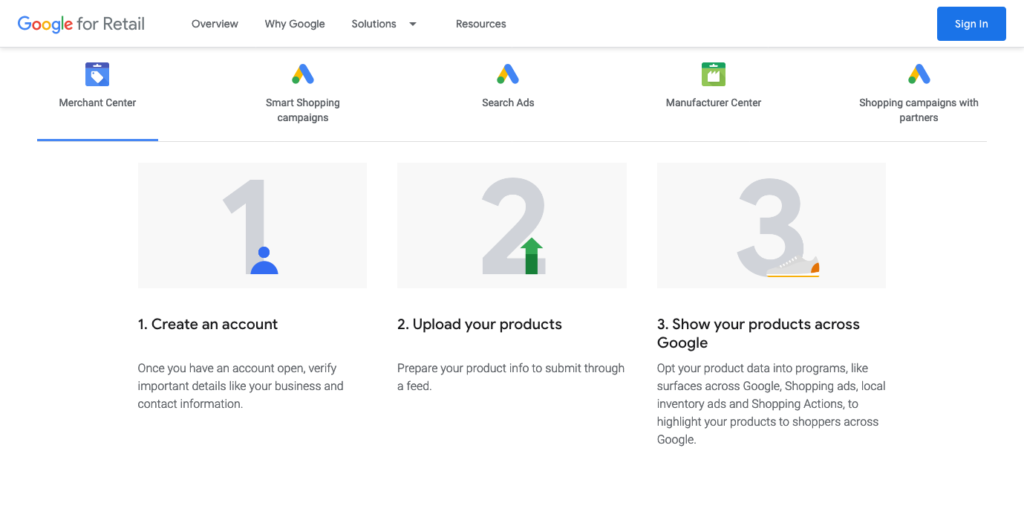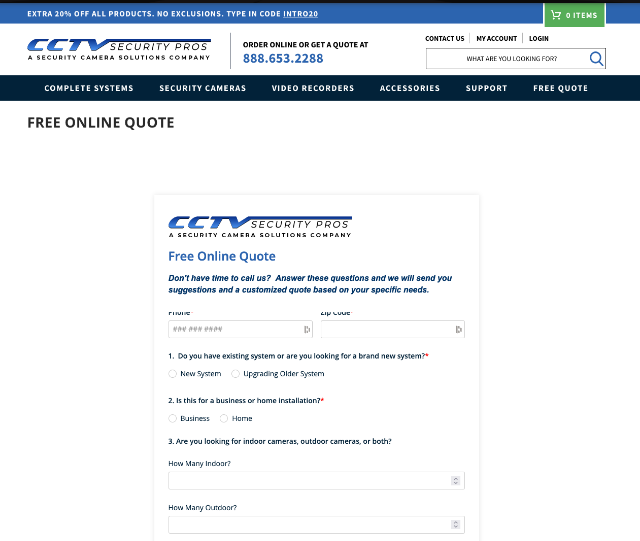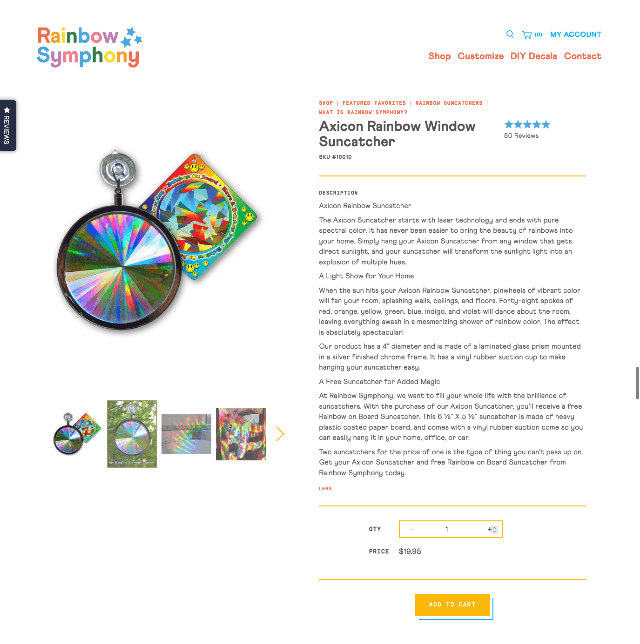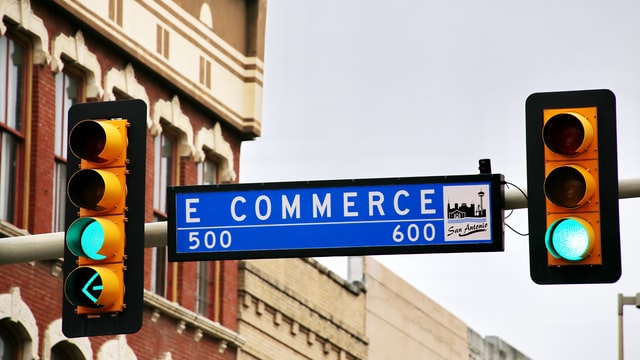Whether you’re a seasoned digital marketer or you’re newer to the field and wanting your business to have better success online, it is important to understand how ecommerce SEO is different from lead generation SEO. Optimizing your business’s search engine results can be the smartest way to enhance your company’s revenue in an organic way.
What is SEO?
SEO stands for “search engine optimization.” You want your website to come up higher in search engine results pages, so you optimize your content. There are different strategies for doing so, but they should keep in mind Google’s EAT standards for the algorithms that determine placement on results pages by taking expertise, authoritativeness, and trustworthiness into account. According to Forbes, 63% of marketers believe SEO is your most valuable marketing tool, especially with the effects of the pandemic driving more people to look for their products and services online. SEO marketing operates on the proven principle that business revenue directly follows from website traffic.
The numbers demonstrate that incorporating SEO best practices into your digital marketing strategy is both the most efficient and cost-effective way to enhance the online exposure for your business. Significantly, the top three pages that appear in Google’s search engine results pages receive 75% of the organic clicks for that search. Search Engine Journal reports that 53% of all trackable website traffic comes from organic search. “Organic” in this case means “unpaid,” a distinction from pay-per-click advertising results, which are relevant to ecommerce SEO. Taking these and other similar statistics together demonstrates the power of successful SEO.
Why Are There Different Types of SEO?
There are a variety of different SEO strategies, and ecommerce vs. lead generation is one of the more important distinctions. In the end, SEO comes down to increasing your business’s visibility in search engines. When customers see you pop up in their search results more, your website performs better, and your business booms as a result.
Since SEO is all about optimization, it requires individual customization and adaptation. No business’s SEO will be the same because no business is exactly the same. In fact, successful businesses will want their digital presence to demonstrably stand out from their competitors, which means using a targeted SEO strategy to allow their unique strengths to shine. Deciding whether ecommerce SEO should be a priority or whether SEO focused on lead generation would be more beneficial is an important decision that should be made during the early stages of creating a digital marketing plan.
What is Ecommerce SEO?
Ecommerce search engine optimization focuses on the digital marketplace aspect of your business. In other words, this type of optimization seeks to get people to click on a website and then complete a purchase. A successful SEO plan that focuses on digital sales considers the user-friendly nature of the ecommerce platform as well as the applicability and quality of the website’s digital content.
Ecommerce SEO prioritizes traffic that leads to sales. Keyword usage, pay-per-click advertising, conversion rate optimization, and similar marketing strategies are often a part of this type of SEO. It’s all about keeping the customer’s attention while convincing them of the value of the product so that they complete their purchase.
In addition, you can set up a free Google Merchant Center account and create a feed for each of your products. Each product will need the following:
- A unique ID for each of your products
- Product title – Make your product title your top priority and place the primary keyword towards the front of your product title.
- Product image – Use a professional image of your product. Avoid using logos, watermarks, and additional text.
- Product category – Select a category from Google’s Product Taxonomy (GPT) and narrow it down as much as possible.
- Product type – Enter a product type to further describe niche products and attract relevant audiences.
- Product descriptions – Provide accurate and detailed product descriptions that avoid keyword stuffing.
- Global Trade Item Number (GTIN)

What is Lead Generation SEO?
Lead generation search engine optimization, most simply, is about creating leads or potential customers. In other words, the end goal is a lead, such as a potential customer filling out a contact form for more information. Lead generation focuses on creating more organic search results by increasing your website’s ranking in search engine results pages. By optimizing your business’s online presence to ensure website visitors know exactly what your business has to offer, lead generation SEO has the ability to bring more people to you, which then creates leads.

While lead generation SEO can take a variety of forms, typically it involves forms of inbound marketing including keyword optimization and strategic link building, where website content is developed with the audience in mind.
How Are These SEO Strategies Different?
Basically, ecommerce SEO focuses on creating immediate customers, with targeted marketing that results in purchases, while lead generation SEO focuses on creating lasting customers, with target marketing that results in contact between the company and their potential client. Ecommerce is focused on traffic rather than the relationships which tend to be more associated with lead generation; both SEO strategies, however, are about customers and the potential revenue they can bring to the company.
Of course, ideally even lead generation SEO wants to do more than just generate leads; the goal is for generated leads to turn into converted customers. Just like with ecommerce SEO, ultimately lead generation SEO seeks to create customers. But the processes and means are different while reaching a similar goal.
What Are the Differences Between These SEO Landing Pages?
A solid lead generation landing page converts users by providing a lead magnet or useful information (i.e. an ebook) in exchange for contact information. In order to get users to engage with your contact, you need to have a clear explanation, provide value, follow with credibilities like testimonials and credentials, and end with a powerful CTA.
On the other hand, ecommerce landing pages focus on selling products. Exceptional ecommerce landing pages are user-friendly and can convert users within minutes. These pages rely on clean copy, quality product images, and accurate product descriptions.

How Do I Know What Type of SEO Is Best for My Business?
While each business is different and there is no hard and fast rule, there are some general principles to consider when determining what SEO strategies would be most useful for your business. Broadly, ecommerce SEO works best for product-based businesses, and lead generation SEO can be more applicable for companies that offer services.
Whatever your business is, knowing the difference between ecommerce and lead generation SEO will be useful as you build your digital marketing strategy. You may be ready to increase your revenue with a digital agency that can help you craft your individual targeted plan for SEO.

